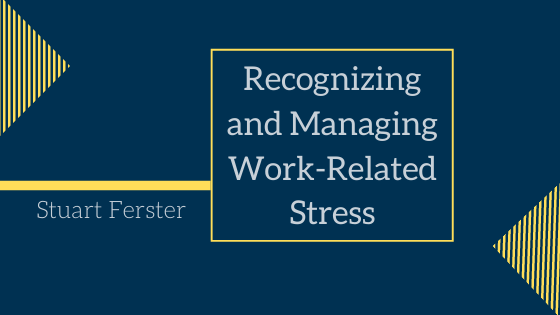Stress is a factor in most workplace relationships. It often leads to burnout, creates interpersonal conflicts, and sets back employees’ health.
Work-related stress can harm your health and your performance. While most of us know that stress can affect productivity, it can also cause several health problems and affect our relationships. This article shares ways to identify work-related stress as it starts to creep into our lives and strategies for managing it.
How to Recognize Work-Related Stress
1. You’re having trouble sleeping
Stress can keep you up at night. Your mind won’t stop racing, and you can’t seem to get a peaceful rest. You get into bed, but your mind is racing with thoughts of work or worries about your personal life, and it’s tough to fall asleep. If this has been happening on and off for a while, it may be stress-related.
2. You don’t enjoy what you do
Have you ever stopped and looked at your job and wondered why you’re doing it? If you’ve been stuck in a bad, causing more harm than good, it might be time to start looking for greener pastures.
3. You feel depressed
If you find yourself feeling sad or depressed a lot, it could be a sign that something is going on in your life that’s causing the stress. Are there any problems at home? At work? If you’re feeling down, it’s something that needs to be addressed.
4. You’ve been sick a lot lately
If you’ve been feeling sick and staying at home more often than usual, it might be that stress is at play. The flu can be a stressor, and so can chronic illnesses. If you never get sick and all of a sudden you’re running low on energy and getting sick more often, it’s time to look for causes.
How to Manage Work-Related Stress
1. Make a list of your stressors
It’s important to find the things causing you work-related stress: what’s upsetting you? What are you worried about? Look at your situation and consider the worst-case scenario.
2. Identify strategies for dealing with stress
Everyone has different ways of dealing with stress. Think about how you like to deal with stress and see if it matches your strategies.
3. Prioritise
Some things in life are more important than others, so find a way to prioritise what needs doing now and what can wait until tomorrow, next week, or next month.
4. Be realistic
How much time can you give to something? How much will the effort you put in help? Think about how you’ll use the energy that’s being used to deal with work-related stress, and decide whether it’s worth holding on to or letting go.
Stress in the workplace is prevalent and can cause serious problems if it goes unchecked. Be aware of the signs that stress is creeping into your life, and find ways to deal with it before it starts to affect you both professionally and personally.

